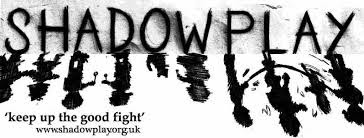 |
| Roald Dahl: An unlikely hero |
The publicity around fellow children’s author Michael Rosen’s
new autobiography Fantastic Mr Dahl has
been a welcome excuse to ponder the merits of the 20th century’s
pre-eminent children’s writer, who died in 1990. It is perhaps only now in what
I jokingly call adulthood, reading picture books with my nephew, that I realise
quite the style and verve Dahl wrote with and the credit he gave his youthful
readership.
Dahl’s most notable works include James and the Giant Peach, The Witches, Matilda, Fantastic Mr Fox,
George’s Marvellous Medicine, The BFG and Charlie and the Chocolate Factory. However, credit much also be
given to personal favourites like The Magic
Finger in which geese take over a household, the strange world of balconies
and tortoises in Esio Trot and the gentle humour of The Giraffe and the Pelly and Me.
Although Dahl wrote for children somewhere between five and
ten years old, his greatest skill was not to patronise his readership. Where
others would’ve shied away from orphaned children and callous, unloving
parents, Dahl drew these facets to the centre of many of his works. He wasn’t
afraid to subvert preconceptions of sweet grandmas and scary giants nor include
genuine peril in his novels. Whether it is the main character cowering behind a
screen for fear of being turned into a mouse in The Witches or Danny driving a car aged nine to rescue his father
who is stuck down a pit in the dead of night in Danny the Champion of the World, there’s always moments which are
uncomfortable to read and put the main character at huge risk. Moreover, at the
start of The Witches Dahl shatters
the glass of the notion that this is a fairytale and explains that Witches look
like any other person and could be around you every day in a foreword. That, and
my sister Imogen whispering “and then the child was gone, just a picture
painted on the canvaaas” in a Norwegian accent was enough to genuinely scare me
for years.
 |
| Matilda by long time Dahl collaborator Quentin Blake |
Right and wrong are also at the heart what Dahl challenges.
In Danny, the protagonist and his
father poach – or steal by another name – from rich aristocrat Victor Hazell while
in Charlie several of the irritating
children are effectively killed off much to the delight of the readership. However,
research by Charles Gerard Van Renane of Rhoses University showed that many
children don’t like main characters such as George as they go too far (i.e. poisoning his
grandma).
In a piece published in The Big Issue, Rosen says that Dahl “wasn’t
a perfect bloke” and that he had “odd or unpleasant” elements to his past. He
adds that: “I wouldn’t mind guessing that I would have clashed over some
political things he said or wrote.” But for everything that didn’t quite sit
right about Dahl, his ability to create an unlikely hero triumphing over a
carefully crafted ogre was redoubtable.
 |
| The Grand High Witch |
Dahl’s ability to write about family relationships, too, was
uncanny. The way he builds the partnership between Danny and his father William
in the slow building first few chapters of that novel or between Matilda in
Miss Honey – united through a love of books and lack of love from their own
parents or guardians – builds a constant theme of being a team against the
monstrous likes of Hazell or the perfect villain, Miss Trunchbull. Dahl channelled
his own life into these characters too, his granddaughter Sophie appears as the
meek heroine who partners The BFG to catch dreams and save the Queen.
But it’s for his humour that Dahl is most cherished. The
bizarre Umpa-Lumpas, the worms in Mr Twit’s beard, the talking insects or Bruce
Bogtrotter shoving a mound of cake into his face – there’s always something to
make you smile.
Dahl sits on the very top table of authors, children’s or
otherwise, in being able to consistently and perfectly do what many have tried
and failed to accomplish: write an engaging story or all ages. His star and the
glint of Charlie’s golden ticket, will continue to burn bright for generations
to come.




